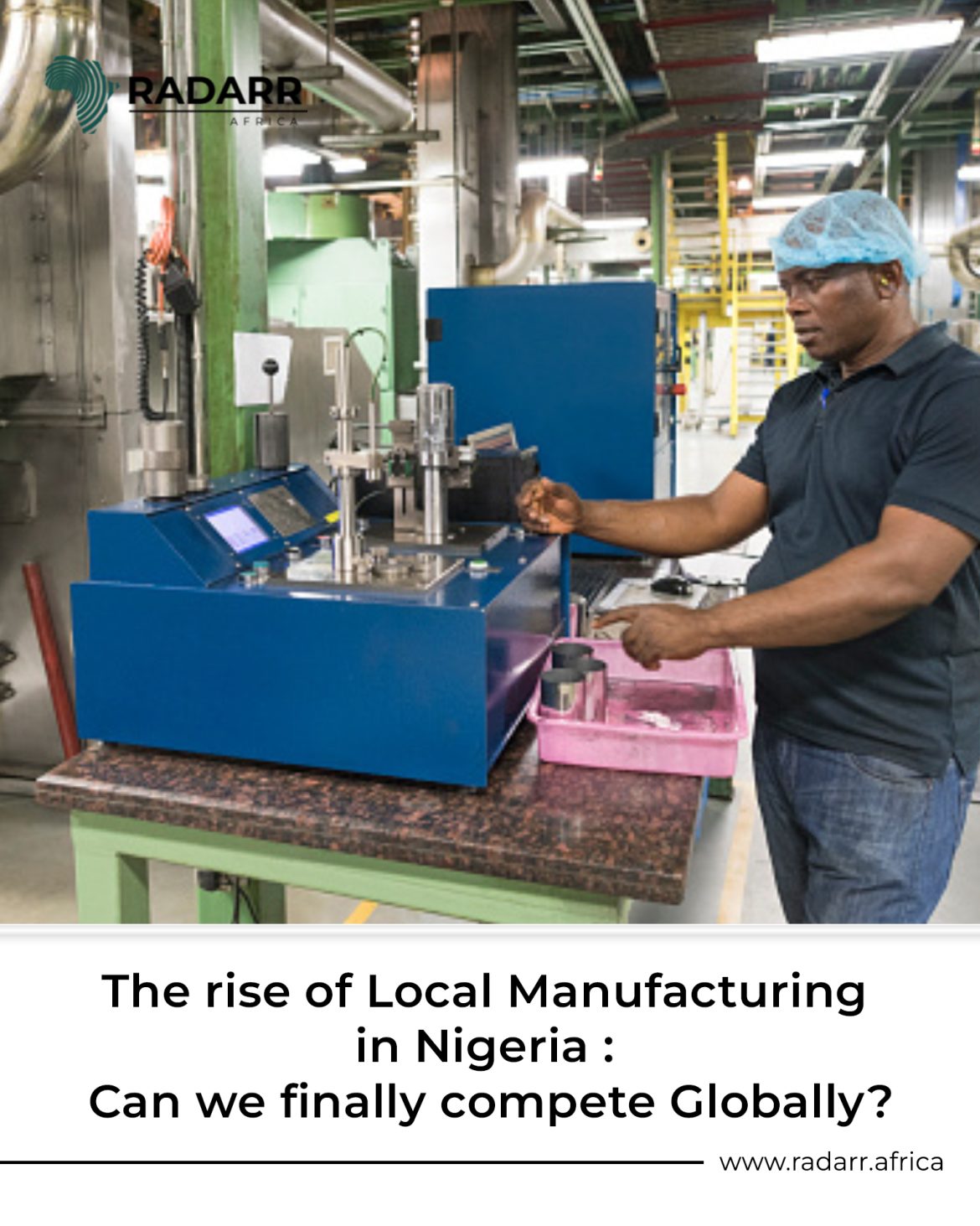The hum of machines and the clatter of production lines are no longer confined to industrial hubs in Europe or Asia. Across Nigeria, local manufacturers are quietly ramping up operations, investing in modern equipment, and embracing innovative business models. From Lagos to Kano, factories producing everything from textiles to processed foods are beginning to see that it is possible to compete not only within Africa but also on the global stage. After decades of relying heavily on imports, a new spirit of industrial self-reliance is emerging, driven by entrepreneurs, government initiatives, and a growing awareness of the benefits of “Made in Nigeria” products.
This shift is more than just economic; it is cultural and strategic. Consumers are becoming more discerning, increasingly choosing local products for quality and affordability, while manufacturers are learning to balance cost, efficiency, and innovation. The Nigerian Industrial Revolution of the 21st century is not about copying global models but adapting them to local realities—finding ways to produce high-quality goods despite challenges like power outages, high logistics costs, and inconsistent supply chains. For a country with a population exceeding 220 million, this local manufacturing push could mark the start of a new era of economic independence.
Government Policies and Incentives Driving Growth
Over the past few years, policy interventions have played a crucial role in reigniting local production. The Central Bank of Nigeria and the Federal Ministry of Industry, Trade, and Investment have introduced initiatives aimed at supporting manufacturers, ranging from tax incentives to targeted financing schemes. Programs that promote import substitution and local sourcing are helping Nigerian businesses reduce dependency on foreign goods, while export promotion schemes encourage them to look beyond domestic borders. These efforts have created a favorable environment for growth, but the true test remains in execution.
Despite these policies, manufacturers still face an uphill battle. Access to affordable capital, infrastructure deficits, and bureaucratic red tape continue to challenge many producers. Yet, resilience has always been a hallmark of Nigerian entrepreneurs. From startups making cosmetic products in Lagos to agro-processing factories in Kaduna, companies are finding creative ways to navigate these challenges. By leveraging technology, optimizing supply chains, and innovating in product design, local manufacturers are increasingly demonstrating that Nigerian-made goods can meet international standards.
Technological Innovation and Modernization in Manufacturing
Technology is rapidly transforming Nigeria’s manufacturing landscape. Smart production lines, automated quality checks, and digital inventory management are becoming common in forward-thinking companies. Some factories are now using AI-powered solutions to forecast demand, optimize raw material usage, and streamline logistics. This is enabling local producers to deliver consistent quality and scale efficiently, narrowing the gap between Nigerian manufacturers and their global competitors.
In addition to hardware and software upgrades, digital marketing and e-commerce platforms have opened new avenues for reaching international customers. Social media, online marketplaces, and export platforms allow Nigerian manufacturers to showcase their products to buyers worldwide, bypassing traditional barriers such as physical distribution networks. By combining modern production techniques with smart marketing, Nigerian brands are increasingly gaining recognition on the international stage.
The Human Factor: Skills, Training, and Workforce Development
A factory is only as strong as the people running it, and Nigerian manufacturers are beginning to invest heavily in their workforce. Vocational training programs, partnerships with technical schools, and on-the-job mentorship initiatives are raising the skill level of employees. These investments not only improve efficiency and product quality but also foster a culture of continuous improvement and innovation, critical for global competitiveness.
At the same time, entrepreneurship is thriving within the industrial sector. Young Nigerians are launching niche manufacturing startups that cater to both local and export markets. Whether producing furniture, processed foods, or building materials, these innovators are proving that a combination of local knowledge, global standards, and skilled manpower can create products that rival imports and even earn international acclaim.
Export Potential and Competing Globally
Export is the ultimate benchmark for competitiveness, and Nigerian manufacturers are increasingly eyeing foreign markets. From West Africa to Europe, products made in Nigeria are starting to appear on international shelves, often with certifications that meet global standards. This trend signals that local industries are not just filling domestic demand but positioning themselves to earn foreign exchange, diversify revenue streams, and gain credibility in international markets.
However, challenges such as inconsistent regulations, export documentation, and logistical bottlenecks remain. Manufacturers must navigate complex trade agreements and ensure compliance with international standards to succeed abroad. Still, the determination and innovation within the sector suggest that Nigeria’s local manufacturing can not only survive but thrive in the global marketplace, provided that government support, private investment, and technological adoption continue to align with industry ambitions.
The Future of Nigerian Manufacturing
The rise of local manufacturing in Nigeria reflects a broader national ambition to achieve economic self-sufficiency and global relevance. Entrepreneurs are proving that the country has the talent, creativity, and resilience necessary to produce world-class goods. While challenges persist, the combination of government support, technological innovation, and skilled manpower makes it increasingly likely that Nigeria can compete globally in select industries.
This is a pivotal moment for Nigerian industry. The journey from reliance on imports to export-ready production is underway, and each success story adds to a growing narrative of national pride and economic transformation. The question is no longer whether Nigeria can manufacture; the question is how quickly and effectively it can scale, innovate, and claim its place in the global market.
